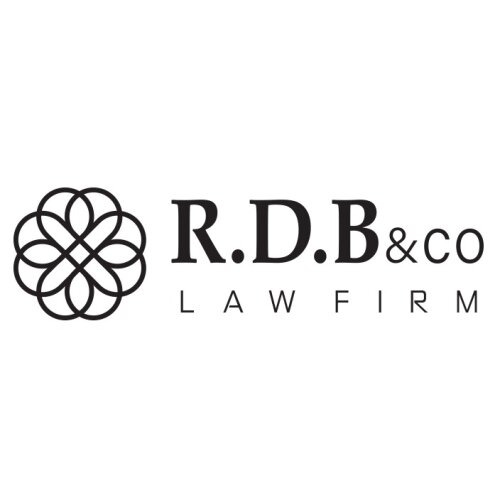Best Restructuring & Insolvency Lawyers in Petaẖ Tiqwa
Share your needs with us, get contacted by law firms.
Free. Takes 2 min.
List of the best lawyers in Petaẖ Tiqwa, Israel
About Restructuring & Insolvency Law in Petaẖ Tiqwa, Israel
Restructuring and insolvency law concerns the processes and legal frameworks for dealing with financial distress experienced by businesses and individuals. In Petaẖ Tiqwa, Israel, these laws ensure that both creditors and debtors have clear rights and obligations when facing insolvency. The law provides pathways for businesses to restructure their debts and operations or, if necessary, to proceed with liquidation. Individuals struggling with severe debt may also access personal bankruptcy procedures. The aim is to offer fair solutions considering the interests of all parties, guided by national legislation and local court practices.
Why You May Need a Lawyer
Legal advice in restructuring and insolvency is crucial because these matters are often complex and time-sensitive. You may need a lawyer in Petaẖ Tiqwa if you are:
- A business owner experiencing persistent cash flow problems or creditor pressure
- An individual facing unmanageable debts or lawsuits relating to unpaid obligations
- A creditor seeking to recover debts from insolvent debtors
- An investor, director or shareholder concerned about company responsibilities during insolvency
- Involved in disputes regarding distribution of assets, claims or appointment of liquidators
- Seeking to protect assets during restructuring or liquidation proceedings
- Needing guidance on formal procedures and documents required by the court
Local Laws Overview
Restructuring and insolvency cases in Petaẖ Tiqwa are subject to Israel's Insolvency and Economic Rehabilitation Law, 5778-2018. Key aspects include:
- Debtors and creditors may initiate restructuring or insolvency proceedings through the local court
- Courts may place a company or individual under a stay of proceedings to prevent creditor actions during negotiations
- Restructuring plans must be approved by creditors and the court
- Personal bankruptcy offers a rehabilitative approach, with the chance for discharge from debts after completion of a payment plan
- Company liquidations are overseen by appointed liquidators, who manage asset sales and distributions
- Creditors have rights to file claims and challenge decisions
- Directors and management have legal duties during financial distress and can be held liable for misconduct
Frequently Asked Questions
What is the difference between restructuring and insolvency?
Restructuring involves reorganizing a company’s debts and operations to restore its financial health, often through agreements with creditors. Insolvency is a legal status when an individual or company cannot pay its debts as they come due, sometimes leading to bankruptcy or liquidation.
Can individuals declare bankruptcy in Petaẖ Tiqwa?
Yes, individuals who cannot pay their debts may petition the court for bankruptcy. This offers a structured process that can eventually lead to a discharge from most debts after meeting court-set obligations.
How are creditors protected during insolvency proceedings?
Creditors have rights to file claims, attend meetings, vote on restructuring plans, and receive distributions from realized assets. They may also challenge improper conduct via the court.
Will I lose all my assets in bankruptcy?
Not necessarily. Some personal assets may be protected, and the court may approve a payment plan that allows you to keep essential assets. Each case depends on the person’s circumstances, with the goal of fair treatment for both debtors and creditors.
How does company liquidation work in Petaẖ Tiqwa?
After the court grants a liquidation order, a liquidator manages the process, gathers and sells assets, and distributes funds to creditors according to legal priorities.
Can I stop legal actions against me once insolvency proceedings begin?
Often, the court will issue a stay of proceedings, temporarily halting creditor actions like lawsuits or asset seizures to allow time for restructuring or insolvency proceedings.
What are the duties of company directors during financial difficulty?
Directors must act in the best interest of creditors when insolvency is likely. They should seek legal advice early, avoid asset transfers that disadvantage creditors, and cooperate fully with insolvency professionals.
How long does the restructuring or bankruptcy process take?
It varies depending on complexity, the type of procedure and cooperation of all parties. Some personal bankruptcies may conclude in a year or two, while large corporate restructurings may take longer.
Can creditors force a company or individual into insolvency?
Yes. If certain criteria are met, creditors may file a petition with the court to commence insolvency proceedings against a debtor in default.
Is court attendance required for insolvency matters in Petaẖ Tiqwa?
Many proceedings require at least one court appearance, particularly hearings on approval of plans, creditor disputes or final discharge. Your lawyer can advise you about when attendance is required.
Additional Resources
If you are seeking information or assistance with restructuring and insolvency in Petaẖ Tiqwa, consider these resources:
- The Administrator General and Official Receiver (Ministry of Justice) - oversees insolvency procedures and provides guidance for debtors and creditors
- Israel Bar Association - offers lists of local lawyers specializing in insolvency and bankruptcy
- Local court offices in Petaẖ Tiqwa - for court forms and schedules
- Financial counseling agencies - some non-profit organizations offer debt advice and support
- Legal aid services - help those who qualify with access to legal advice and representation
Next Steps
If you believe you need legal help with restructuring or insolvency in Petaẖ Tiqwa:
- Gather all relevant financial documents, including debts, assets and contracts
- Make a list of your main concerns and questions
- Contact a lawyer experienced in restructuring and insolvency law in Petaẖ Tiqwa for an initial consultation
- Follow your lawyer’s instructions and provide full and honest information
- Keep communication open with creditors and do not ignore legal notices
Lawzana helps you find the best lawyers and law firms in Petaẖ Tiqwa through a curated and pre-screened list of qualified legal professionals. Our platform offers rankings and detailed profiles of attorneys and law firms, allowing you to compare based on practice areas, including Restructuring & Insolvency, experience, and client feedback.
Each profile includes a description of the firm's areas of practice, client reviews, team members and partners, year of establishment, spoken languages, office locations, contact information, social media presence, and any published articles or resources. Most firms on our platform speak English and are experienced in both local and international legal matters.
Get a quote from top-rated law firms in Petaẖ Tiqwa, Israel — quickly, securely, and without unnecessary hassle.
Disclaimer:
The information provided on this page is for general informational purposes only and does not constitute legal advice. While we strive to ensure the accuracy and relevance of the content, legal information may change over time, and interpretations of the law can vary. You should always consult with a qualified legal professional for advice specific to your situation.
We disclaim all liability for actions taken or not taken based on the content of this page. If you believe any information is incorrect or outdated, please contact us, and we will review and update it where appropriate.









